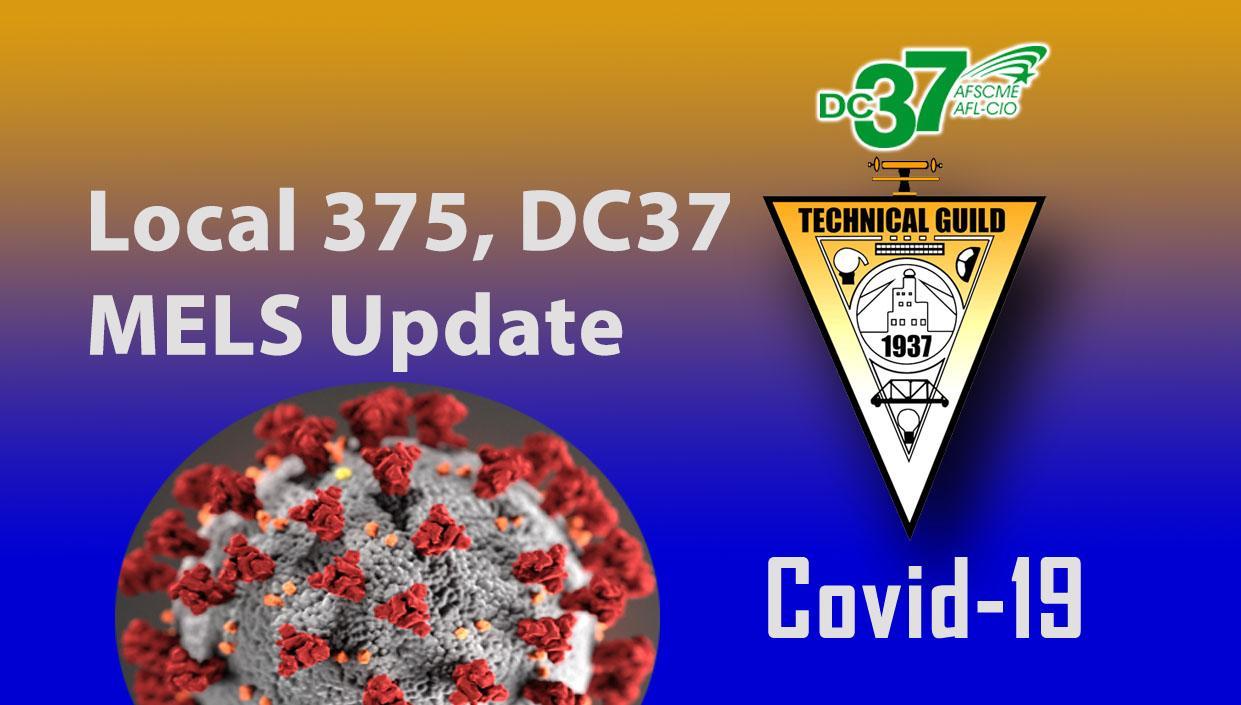The DC 37 Muncipal Employees Legal Services (MELS) answers your questions about the debts of deceased loved ones, especially during this coronavirus pandemic.
Am I responsible for paying off the debts of a deceased relative?
Generally, the answer is, no. Responsibility for a deceased relative’s outstanding obligation is not automatically transferred to a surviving relative.
Are debts extinguished when the debtor dies?
No. Outstanding debts remain active. Payment of the debts becomes the responsibility of the decedent’s estate. If there are no assets in the estate, meaning the decedent left behind nothing of value with which to pay outstanding obligations, the obligations often go unpaid.
Can I, as a surviving relative, ever be held responsible for the deceased’s outstanding debts?
Yes. There are circumstances under which a surviving relative can be held responsible for payment, such as:
– If a surviving family member co-signed for one (or more) of the deceased relative’s debts, the surviving family member may be responsible for payment of the debt(s),
-If a surviving family member is the executor of the deceased’s estate, and is therefore responsible for settling the debts of the estate, with the assets of the estate, and fails to do so.
-If a deceased person’s spouse was responsible for payment of certain health-care-related expenses under a state law.
What if there was no will?
The lack of a will does not mean that there is no estate. If a relative dies intestate (without a will), the estate will be controlled by intestacy laws. In such cases the court may appoint a representative or an administrator to manage the estate and to settle outstanding obligations.
What if debt collectors start calling?
– Debt collectors are permitted to speak to a deceased person’s spouse, parents (if the deceased was a minor), a guardian, executor, or administrator about a deceased person’s debts. Collectors are not permitted to speak to anyone else about the nature of the debts.
– Collectors are permitted to contact third parties to obtain contact information of the deceased’s spouse, executor, administrator, or anyone else authorized to pay the deceased’s debts. Collectors are permitted to make such a call only once, unless the collector has reasonable cause to believe that information provided was inaccurate. Collectors may not discuss the nature of the debt with third parties.
What if I feel I am being harassed by collectors?
-To stop a collector from contacting you about a deceased person’s debts you must send notice in writing to the collector stating that you do not want any further contact.
-Send the original letter by certified mail, return receipt, so that you can track and document the date upon which the collector received the letter. Keep a copy of your letter for your files.
-If you are responsible for paying the debt, as executor, administrator, or co-obligor, be aware that although collection letters and phone calls may have stopped, the debt will remain active and creditors may resort to the Courts for collection.
Be aware of scams.
Unless a surviving relative is responsible for paying a debt for one of the reasons listed above, responsibility for payment of the debt of a deceased relative does not attach to surviving relatives. Unfortunately, there are those who seek to frighten and bully people into paying debts that may not be there’s. Before agreeing to make payments on a debt you are not sure is your responsibility, please call (212) 815-1111 to speak with an attorney at MELS.
Eviction Protection and Rent Hardship for Members
DC 37’s Municipal Employees Legal Services (MELS) is here to help members with housing and rent hardship needs. Although New York City remains on pause through at least May 15, 2020 and Courthouses remain closed, the Office of Court Administration is accepting emergency applications where there has been an eviction, illegal lockout, interruption in essential services or emergency conditions that need repair. Contact MELS at (212) 815-1111 or email [email protected] if you need emergency relief from the Housing Court or would like to speak with an attorney about a housing or rent hardship matter.
● Executive Order No. 202.8, signed on March 20, 2020, bars all evictions and foreclosures in New York State through June 18, 2020.
● Executive Order No. 202.28, signed on May 7, 2020, allows tenants impacted by COVID-19 to temporarily use their security deposit toward their rent obligations, bars landlords from charging late fees between March 20 and August 20, 2020 and stays foreclosures and evictions for non-payment of rent against persons impacted by COVID-19 for an additional 60 days from June 20, 2020 to August 19, 2020.
COVID-19 FINANCIAL HARDSHIP SECURITY DEPOSIT OPTION
Under Executive Order No. 202.28, landlords and residential tenants may enter into a written agreement by which the security deposit and any interest on the deposit can be used to pay rent that is due or will become due. This agreement can be executed by e-mail.
Any tenant who requests this relief is eligible for it if they are eligible for unemployment insurance or benefits under state or federal law or are otherwise facing financial hardship due to the COVID-19 pandemic.
It is the tenant’s option to enter into such an agreement and landlords shall not harass, threaten or engage in any harmful act to compel such agreement. However, any security deposit used as a payment of rent must be replenished by the tenant at the rate of 1/12 the amount used as rent per month.
The payments to replenish the security deposit shall become due and owing no less than 90 days from the date of the use of the security deposit as rent.
The tenant may, at their sole option, retain renter’s insurance that provides relief for the landlord in lieu of paying back the security deposit and the landlord must accept such insurance as replenishment of the security deposit. If you have any questions about whether you are eligible to use your security deposit towards your rent or how to replenish the security deposit, please contact MELS at (212) 815-1111 or email [email protected] for assistance.
COVID-19 FINANCIAL HARDSHIP EVICTION PROTECTION
Under Executive Order No. 202.48, where an apartment or property is owned or rented by someone that is eligible for unemployment insurance or benefits under state or federal law or otherwise facing financial hardship due to the COVID-19 pandemic, there will be no evictions or new eviction proceedings for any tenant for nonpayment of rent and there will be no foreclosures or new foreclosure actions on any mortgage for nonpayment of such mortgage for a period of 60 days beginning on June 20, 2020 and ending on August 19, 2020. If you receive any notices from your landlord or a city marshal or notices from the court at any time, you should contact MELS at (212) 815-1111 or email [email protected] immediately for assistance.
LATE FEES BARRED
Executive Order No. 202.48, no landlord is entitled to or should ask for any fee or charge for late payment of rent occurring between March 20, 2020 and August 20, 2020.
MELS Expedited Service for Members working on the Front Lines
DC 37 Municipal Employees Legal Services is offering expedited services for DC 37 members working on the front lines of the COVID-19 pandemic.
Our lawyers and legal assistants can draft wills, power of attorney and health care proxies.
For assistance email [email protected] or call the MELS Screening Unit at (212) 815-1111.


